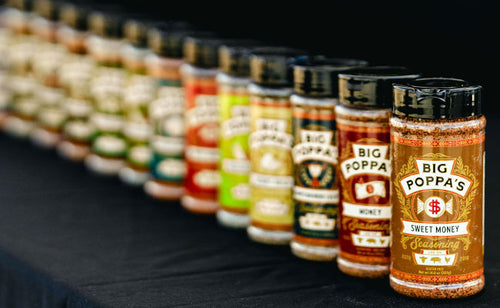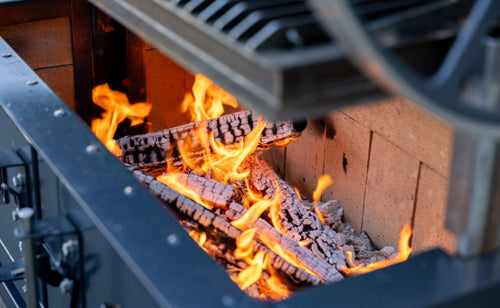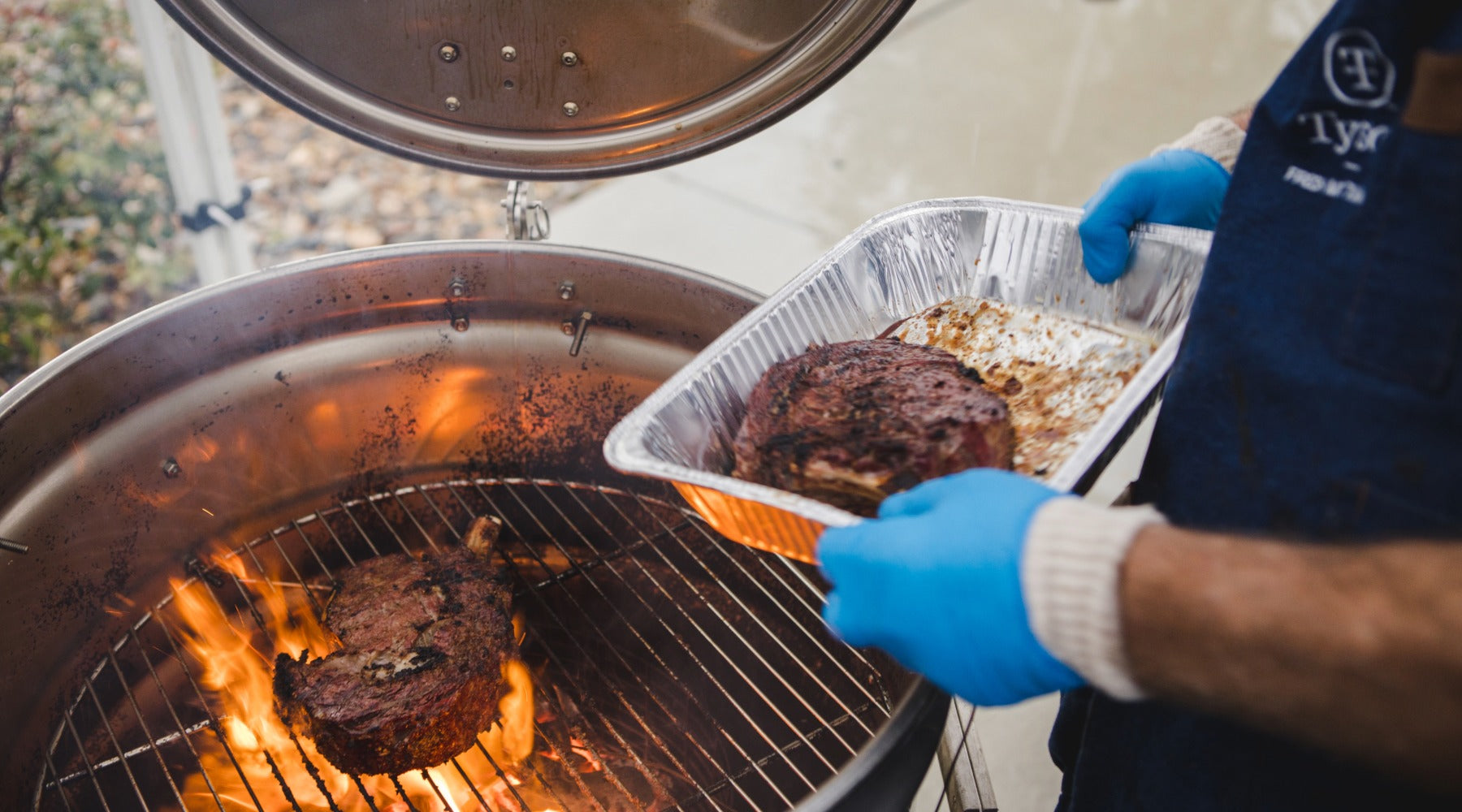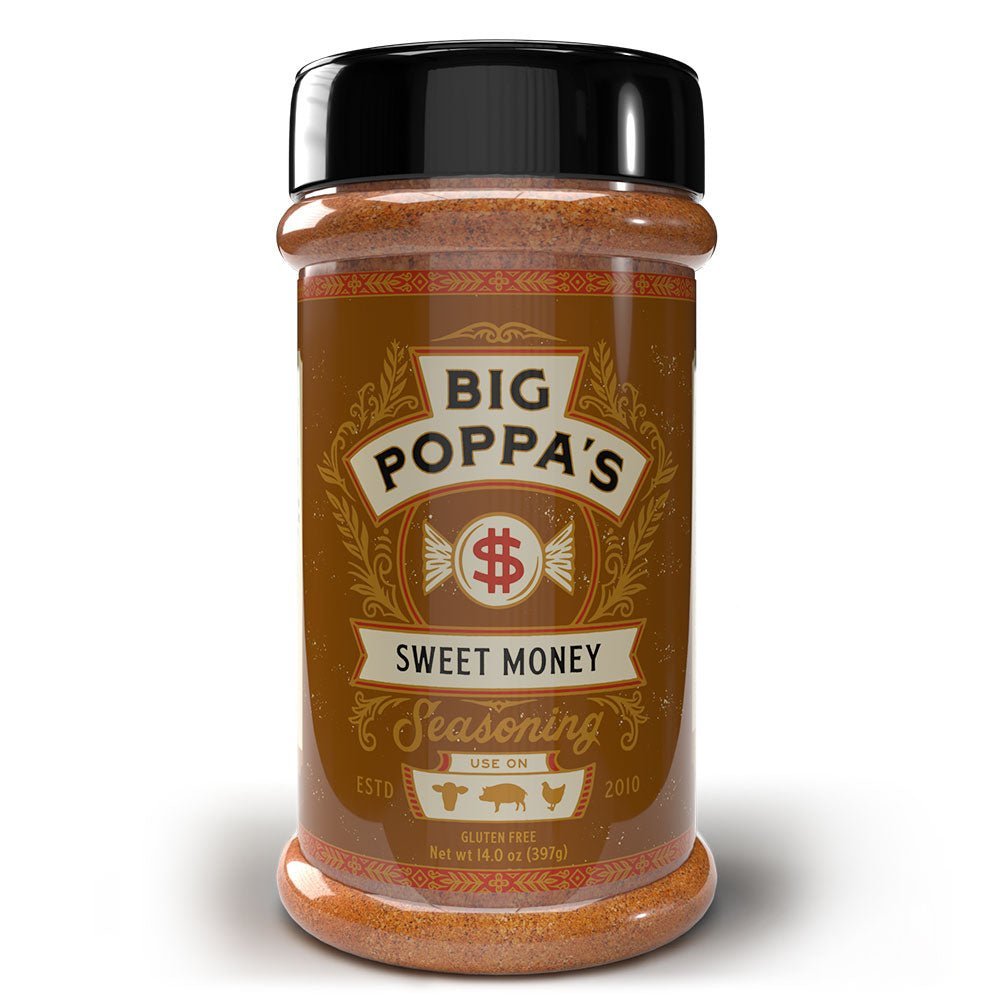7 Tips to Keep Fish from Falling Apart on the Grill, Smoker, or Griddle
Grilling or smoking fish should be satisfying—not stressful. But if you've ever watched a beautiful fillet flake into the fire or stick hopelessly to your grates, you're not alone. Fish is a delicate protein, but with the right tools, techniques, and a little Big Poppa know-how, you can serve perfectly cooked fish every time.
Here are seven tips to keep your fish intact, flavorful, and grill-worthy—whether you're using a smoker, grill, or griddle.
Tip 1: Know Your Fish Cuts
Not all fish are created equal. The cut and texture of the fish greatly impact how it cooks and holds together.
| Fish Cut | Description | Best For | Notes |
|---|---|---|---|
| Whole Fish | Fish with skin, head, and bones | Smoking, grilling on grates or planks | Holds shape well, flavorful |
| Steaks | Cross-cut sections (e.g., salmon, tuna) | Grilling, griddle | Thick, firm, ideal for direct heat |
| Fillets | Boneless, skin-on or skinless | Griddle, cedar planks, foil | More fragile; handle carefully |
Pro Tip: Firmer fish like salmon, tuna, swordfish, mahi-mahi, and halibut hold up better than flaky white fish like cod or tilapia.

Tip 2: Use the Right Cooking Surface
Each surface has its strengths. Choose wisely based on your fish and tools.
-
Smoker: Great for whole fish or thick fillets; low and slow minimizes breakage.
-
Grill: Adds char and flavor, but requires precision and tools to avoid sticking.
-
Griddle/Flat Top: Ideal for skin-on fillets or delicate cuts. Even heat, easy flipping.
Tip 3: Gear Up with the Right Tools
Having the right tools makes all the difference when cooking fish.
-
Fish Turner: A long, flexible spatula that slides under delicate fillets.
-
Grill Grates or Grill Mats: Prevent sticking and provide surface stability.
-
Cedar Planks: Add flavor and protect fragile fish from direct heat.
-
Cast Iron Fish Baskets: Keep the fish contained while flipping with ease.
-
Neoprene Gloves: For safe handling of hot grates, planks, or foil packets.
Tip 4: Start with Dry Fish
Moisture is the enemy of good sear and stick prevention. Pat fish dry with paper towels before seasoning. This helps develop a crust and reduces the chance of tearing.
Tip 5: Oil Smartly—But Not Too Much
Lightly oil both the fish and the grill surface. Avoid over-oiling, which can cause flare-ups. Use high smoke-point oils like avocado, grapeseed, or canola.

Tip 6: Let It Cook—Then Flip Once
Fish needs time to build a crust. Don’t rush the flip!
-
Wait until the edges look opaque and the fish releases naturally from the grill.
-
Use a fish turner to flip gently.
-
For skin-on fish, start skin-side down for crispy texture.

Tip 7: Watch the Temp and Doneness
Fish cooks quickly, so keep a close eye.
-
Internal Temp: 130–135°F for medium; 145°F for well done (FDA recommended).
-
Remove just before it's fully opaque—carryover heat will finish the job.
-
Use a ThermoWorks thermometer for fast, accurate reads.
Big Poppa's Favorite Fish Recipes

Mastering fish on the grill, smoker, or griddle doesn’t have to be intimidating. With the right cuts, gear, and confidence, you’ll serve restaurant-quality fish with backyard flair—without watching it fall apart.
FAQs: Grilling Fish Like a Pro
What’s the best fish to grill for beginners?
Firm fish like salmon, swordfish, and mahi-mahi are easiest to handle and hold up well.
Should I cook fish with the skin on?
Yes—skin helps protect delicate flesh and crisps up beautifully when grilled or seared.
What if my fish sticks to the grill?
Let it cook longer before flipping, and make sure your grates are oiled and preheated properly.
Can I smoke flaky fish like tilapia?
Yes, but it’s best to use a cedar plank or foil pouch to prevent breakage.
How do I add more flavor to grilled fish?
Use bold seasonings like Big Poppa’s Desert Gold or finish with sauces, glazes, or citrus-based marinades.






















Leave a comment
This site is protected by hCaptcha and the hCaptcha Privacy Policy and Terms of Service apply.